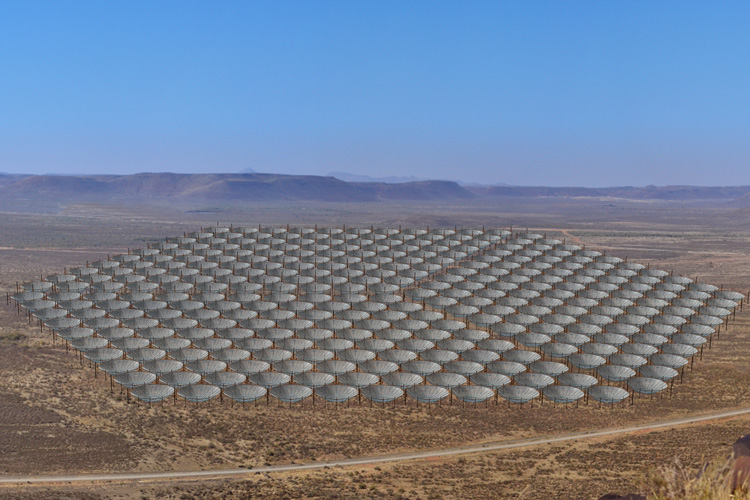News
$5.8 million grant helps expand radio telescope to study ‘cosmic dawn’
 The new funding from the Moore Foundation will help expand the HERA array to 350 dishes, increasing the telescope's sensitivity to radio waves from the epoch of reionization.
The new funding from the Moore Foundation will help expand the HERA array to 350 dishes, increasing the telescope's sensitivity to radio waves from the epoch of reionization. A radio telescope array being built in South Africa to explore the period after stars first formed in the early universe has received $5.8 million in new funding from the Gordon and Betty Moore Foundation.
The grant to the Hydrogen Epoch of Reionization Array (HERA) project, led by UC Berkeley, will help build 110 new telescopes beyond the planned 240, creating a much more sensitive array able to detect faint radio signals at a wavelength of 21 centimeters.
These radio waves can potentially provide a history of the so-called “epoch of reionization,” a period beginning about 400 million years after the Big Bang when the first stars started to form and emitted copious high-energy light that eventually ionized about 90 percent of the hydrogen atoms in the universe. That event allowed starlight to travel uninterrupted through the universe, into our telescopes today. Continue reading…
